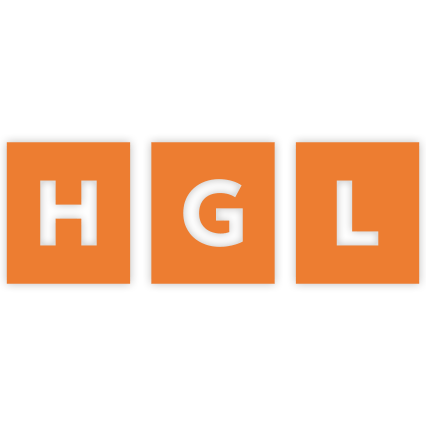

Estate Administration Lawyer in Charlotte
At Hicks-Guinn Law, we recognize the complexities of estate administration, whether it involves probate or trust administration after a loved one’s passing. We are here to provide professional legal support to executors, trustees, beneficiaries, and other parties involved in these proceedings.
Attorney Robyn Hicks-Guinn brings a deep understanding of the intricacies of North Carolina estate law, which she combines with personalized service, empathy, and sensitivity throughout these processes. Our firm’s approach makes us the ideal partner in navigating estate administration.
Regardless of your role in probate or trust administration, we can assist in protecting your interests and fulfilling your responsibilities as we smooth the way toward a satisfactory conclusion.
For dedicated legal assistance, connect with our qualified estate administration attorney in Charlotte. Contact (888) 373-9699 to arrange your consultation right away.
What to Expect in Charlotte Probate and Estate Administration
When beginning the probate or estate administration process in Charlotte, it’s natural to have questions and concerns about what lies ahead. At Hicks-Guinn Law, PLLC, we are dedicated to providing step-by-step support, ensuring you fully understand your obligations, property rights, and the necessary local court procedures. Working with an attorney means navigating the Estates Division at the Mecklenburg County Courthouse, meeting important filing deadlines, and managing every requirement tied to your loved one’s estate. Because procedural rules and court guidelines can vary by county in North Carolina, trusting a knowledgeable estate administration lawyer in Charlotte helps ensure that nothing is overlooked. Whether you’re a Charlotte native or managing an estate from out of state, our firm is committed to making the process as clear and efficient as possible for your family.
Roles & Responsibilities in Estate Administration
Navigating probate and estate administration in Charlotte often requires multiple parties collaborating for a smooth, legally compliant process. The primary roles include executors or administrators, beneficiaries, creditors, and the probate attorney. The executor or administrator acts on behalf of the deceased, managing asset collection, settling debts, communicating with the probate court, and ensuring all distributions comply with North Carolina law. In Mecklenburg County, an executor’s responsibilities require close attention to local court requirements and strict timelines. Errors in document submission, communication, or disbursement in the Charlotte area may cause disputes or delay asset transfers. That’s why guidance from an estate administration lawyer in Charlotte is so valuable.
At Hicks-Guinn Law, PLLC, we ensure that every client clearly understands their role—whether named as executor, an administrator, a beneficiary, or as a concerned family member. Our team provides practical support, transparent communication, and honest advice that Charlotte families appreciate. As your estate administration lawyer in Charlotte, we regularly prepare and submit vital filings to the Mecklenburg County Estates Division, assist with beneficiary notifications, and help you comply with all local rules. We tailor our approach to address the unique needs of every family, ensuring a responsive, caring, and effective process for each estate, large or small. Our proactive approach has helped many clients protect their interests while reducing conflict and unnecessary court involvement.
Request a consultation with our Charlotte estate administration attorney by submitting our contact form or by calling us at (888) 373-9699.
What Sets Us Apart From The Rest?
Hicks-Guinn Law, PLLC is here to help you get the results you need with a team you can trust.
-
Experienced FirmBenefit from the wealth of experience our team brings to your side. In addition to successfully handling numerous cases, Robyn Hicks-Guinn also shares her expertise by instructing and mentoring other legal professionals.
-
Personalized SolutionsWhen you choose our firm, you will receive personalized legal representation. We will take the time to get to know you and work closely with you to develop a strategy tailored to your needs.
-
Flexible ConsultationsWe are flexible and committed to meeting you wherever is most convenient. Whether it's at your home, in a hospital, or through a virtual consultation, we ensure accessibility across the entire state.
-
Every Case Prepared for Court
Every case is meticulously prepared for court, ensuring that our clients receive the best representation and our commitment to achieving optimal outcomes for those we serve.
Probate in North Carolina
Probate is a legal process that takes place after a person passes away. It involves validating the deceased person's will, inventorying their assets, paying debts and taxes, and appropriately distributing the remaining assets to heirs or beneficiaries. Working with a probate attorney in Charlotte can help you anticipate potential issues, avoid costly errors, and streamline proceedings.
The initial step in probate is the appointment of an executor or personal representative, who is usually named in the will. If there is no will or no designated executor, the court appoints a personal representative. The representative has a fiduciary duty, which requires them to act in the best interests of the estate and its beneficiaries. Consulting a Charlotte probate lawyer early can clarify your obligations and protect you from personal liability.
For families in Charlotte and Mecklenburg County, understanding the local probate court’s operations is essential. The Mecklenburg County Estates Division oversees the probate process, including unique forms and procedures such as filing the will with the Clerk of Superior Court. Deadlines and requirements may differ from other counties, and failure to adhere can result in significant delays. Local insight is crucial when settling debts, filing tax forms, or managing real property in Charlotte’s neighborhoods, where title and ownership matters can become complex. Choosing an experienced estate administration lawyer in Charlotte ensures compliance, efficiency, and peace of mind at every stage.
Types of Probate in North Carolina
In North Carolina, there are essentially three types of probate methods:
- Claiming Personal Property by Affidavit: Used when the total value of the decedent's personal property is $20,000 or less ($30,000 if the spouse is the sole heir). After 30 days from the decedent's death, the heir or devisee can prepare an affidavit to claim the personal property.
- Summary Administration (Summary Probate): The probate court may allow this method when the decedent's personal property does not exceed the sum of allowances, costs, and expenses of administration, statutory commissions, and medical and funeral expenses.
- Full (Standard) Administration: This is required when the estate does not qualify for simplified methods. It is often necessary for larger or more complex estates.
Each probate method involves specific eligibility criteria and must go through court approval. In Charlotte, certain assets—like jointly titled homes or vehicles registered with transfer-on-death—may qualify for simplified treatment or avoid probate altogether. Experienced probate attorneys in Charlotte, such as our team at Hicks-Guinn Law, PLLC, provide guidance on method selection and ensure paperwork is properly completed and submitted to the right local agencies. Our goal is to help you save time, reduce stress, and facilitate a fair, efficient process for all parties involved.
The Steps in the Standard Probate Process in Charlotte
- Filing an application for probate in the Superior Court Division of North Carolina.
- Upon approval, taking an oath and receiving Letters Testamentary or Letters of Administration.
- Publishing a Notice to Creditors in a local newspaper.
- Inventorying the estate's assets and filing an Inventory with the court within three months.
- Paying valid claims against the estate.
- Filing annual accountings with the court.
- Finally, distributing the estate's assets to the beneficiaries and closing the estate.
Certain property types do not have to go through probate in North Carolina. Such property includes:
- Jointly owned property that transfers to the surviving owner(s).
- Life insurance or retirement account proceeds that go directly to named beneficiaries.
- Property held in a living trust.
- Pay-on-death bank accounts.
- Transfer-on-death securities.
- Vehicles registered with a transfer-on-death form.
While these steps may appear straightforward, every probate case offers unique challenges. In Mecklenburg County and throughout Charlotte, court backlogs, disagreements among heirs, or properties with complex titles can all impact probate timelines and outcomes. Working with a trusted probate attorney in Charlotte is invaluable. We anticipate local issues, proactively resolve questions, and coordinate with area financial institutions and title agencies. Families sometimes face difficulty locating all assets, addressing tax obligations, or interpreting complex estate plans. With Hicks-Guinn Law, PLLC as your estate administration attorney in Charlotte, you'll benefit from consistent updates, proactive problem-solving, and practical solutions tailored to your circumstances. Our mission is to simplify each stage for executors, administrators, and beneficiaries and to help you reach a smooth and satisfactory resolution as quickly as possible.
Learn more about how our Charlotte estate administration lawyer can help you by contacting us online or by calling (888) 373-9699 today!


-
I had a sensitive matter that needed to be handled quickly and efficiently and they took care of my needs. I would recommend their services anytime!- Tedra B.
-
From the first meeting Robyn was very knowledgeable, professional and empathetic which I highly value. Robyn and team genuinely cared about making sure I got the information that I needed to make the best decision.- Amara R.
North Carolina Trust Administration
Trust administration involves managing trust assets in accordance with the trust document and North Carolina law after the settlor’s death. This includes notifying beneficiaries and interested parties, gathering and managing the trust's assets, handling tax matters, and distributing assets in line with the trust’s terms. Engaging a knowledgeable probate attorney in Charlotte ensures compliance with both legal and fiduciary obligations at every step.
Unlike probate, trust administration does not typically involve court supervision, allowing for a more efficient process. However, trust administration presents its own specific challenges, distinct from probate, particularly for those dealing with property and assets in Charlotte or the greater Mecklenburg County area.
In Charlotte, trust administration may require coordination with local banks, real estate agencies, and accountants to ensure assets are accurately inventoried, valued, and transferred. Properties in Charlotte neighborhoods may be subject to local property taxes or specific deed considerations, which can complicate administration if not addressed. If a trustee is unfamiliar with required financial records or reporting deadlines, delays or disputes can occur. Working with an experienced estate administration lawyer in Charlotte keeps the process on track and meets the expectations of beneficiaries and the court.
The trustee must act solely in the best interest of the beneficiaries, upholding their fiduciary duty under North Carolina law. Legal support can prevent errors, clarify obligations, and help resolve potential disputes. Beneficiaries also have rights and can benefit from clear advice and advocacy throughout the administration process.
Like the probate process, trust administration can involve complex asset transfers or contested issues. An estate administration attorney in Charlotte can guide you through every phase, minimize misunderstanding, and promote harmonious resolutions. At Hicks-Guinn Law, PLLC, we combine legal acumen with a personal approach to ensure that your trust administration is handled timely and in accordance with all legal and ethical standards.
Work with a Trusted Estate Administration Lawyer
At Hicks-Guinn Law, we help guide you through the probate or trust administration process to ensure every detail is handled correctly under North Carolina law. Whether you have been appointed as an executor or trust administrator, or you are an heir, beneficiary, or another interested party, we help you successfully navigate the legal system for the best possible results.
Our attorney has dedicated the majority of her career to North Carolina estate law and procedures and now instructs other lawyers statewide in these matters. She and her team are committed to providing the highest standards of professionalism and care to clients seeking a probate attorney in Charlotte or a trusted estate administration lawyer in and around Mecklenburg County.
For families and individuals across Charlotte, our commitment means we offer clear, convenient, and compassionate support during difficult times. We are well-versed in the unique requirements of Mecklenburg County’s estate and trust processes and collaborate closely with court staff and local financial professionals to serve you better. Our willingness to accommodate clients by meeting in preferred Charlotte neighborhoods, hospitals, or other locations ensures greater accessibility and personalized counsel. With our deep understanding of local procedures, guidance at Hicks-Guinn Law, PLLC is grounded in both legal knowledge and a commitment to the needs of the Charlotte community. Selecting a probate lawyer or estate administration attorney with true local insight can make a real difference in a seamless, well-managed outcome.
Contact us online or at (888) 373-9699 for legal help today.
Frequently Asked Questions
What is the difference between probate and estate administration?
Probate refers to the legal court-supervised process for validating a will and settling an estate, managed by the Estates Division in Mecklenburg County. Estate administration is a broader term encompassing all activities—whether there is a will or not—related to marshaling, managing, and transferring assets after a death. In Charlotte, both processes must comply with local and state requirements, including timely filings and notifications. Working with a probate attorney in Charlotte helps you distinguish between these terms and ensures compliance with all applicable rules.
How long does the probate process usually take?
The duration of probate in Mecklenburg County varies depending on estate complexity, disputes among heirs, and whether all documents are filed on time. Uncontested estates with a cooperative executor often resolve within six months to one year, but complications like real estate issues or creditor claims can extend this timeframe. The Estates Division enforces specific deadlines for inventory submission, notice to creditors, and distribution of assets. Choosing a responsive probate lawyer in Charlotte, such as Hicks-Guinn Law, PLLC, helps reduce delays and confusion with proactive management and regular communication with the courthouse and all parties involved.
Can certain assets avoid probate?
Yes, certain assets can bypass probate in Charlotte and throughout North Carolina. These include jointly owned property with rights of survivorship, accounts with designated beneficiaries (like IRAs and life insurance), and assets in a properly funded living trust. Transfer-on-death deeds for vehicles and pay-on-death account designations for banks and investments can also enable automatic distribution to beneficiaries. Engaging an estate administration attorney in Charlotte can help you confirm which assets are probate-exempt, review documents and titles, and ensure the correct procedures are followed for smooth transfers.
Get comprehensive legal guidance from a estate administration attorney in Charlotte you can trust. Call (888) 373-9699 or contact us promptly to schedule your consultation.